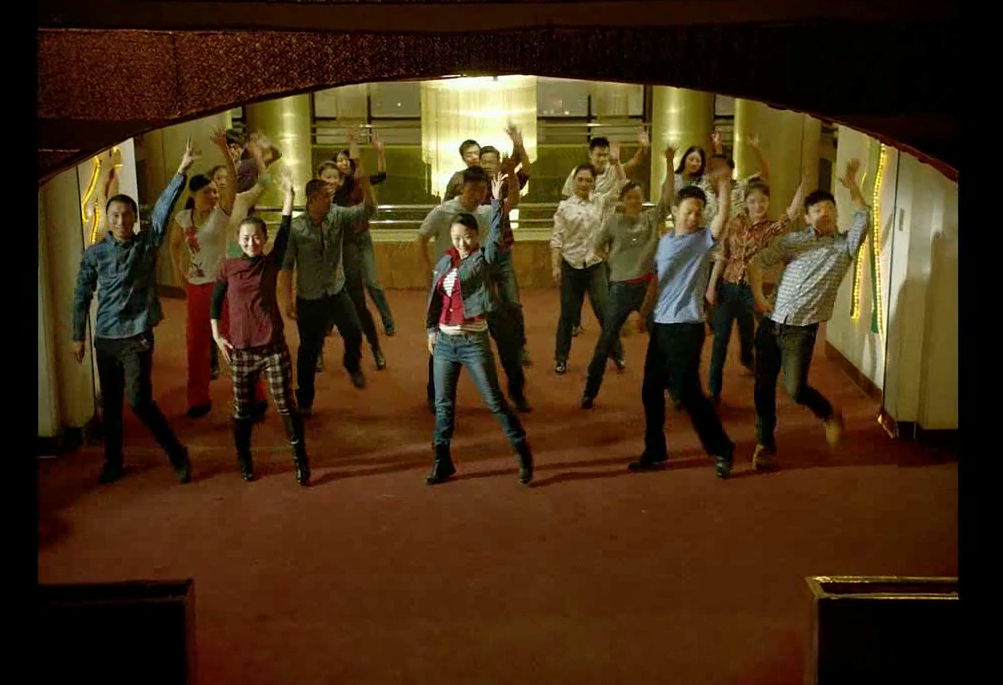Mountains May Depart (Jia Zhangke, 2015)

Jia Zhangke’s Mountains May Depart is one of the more polarizing films of the year. It marks a radical shift in Jia’s formal technique, abandoning the long-shot/long-take aesthetic that has made him one of the preeminent examples of 21st Century Asian Minimalism. Instead, working with his longtime cinematographer, Yu Lik-wai, Jia films in a conventional mainstream style: the camera moves, he edits within a scene and we get close-ups of the actors. This is in keeping with the broad melodrama of the story’s construction. A schematic story of a love triangle told in three different time periods, Mountains is the most baldly emotional movie Jia has yet made. His close-ups reveal what we long-suspected but that the old long shots tended to obscure, namely that Zhao Tao is one of the great actors of her generation. In the first story, set in 1999, she’s the pivot point in the love triangle with two men, one a poor coal miner, the other an aspiring capitalist. She ultimately chooses the rich man, which leads to the shattering heartbreaks of the second chapter, set in 2014, a story itself split in two halves, first about the miner and his wife, the second about Zhao and her now-estranged son, who is sent home to attend his grandfather’s funeral. The third story, set in 2025, follows the son, now emigrated to Australia where he has all but forgotten his Chinese past, the language, and even his mother. He connects with another Chinese immigrant, his much older teacher (played by Sylvia Chang), and the Oedipal nature of their relationship is no less subtle than the boy’s name (he was aspirationally christened “Dollar” by his ludicrous father).
This third section has come under fire (usually under the same vaguely racist rubric of “(Chinese filmmaker) can’t direct in English” that Wong Kai-wai was saddled with in regards to My Blueberry Nights) for its obvious schematicism and the artificiality of Dong Zijian’s performance as Dollar. I suspect this is largely a category error, that we’re used to Jia making withdrawn, somewhat obscure films like Platform and Still Life, films whose equally schematic melodrama is hidden behind long takes and a lack of emotionally direct dialogue. The issues Jia is addresses are not new: no one has more obsessively followed the dislocations and disruptions of the Chinese family in the wake of the imperatives of modern capitalism than he has over the past 20 years. But as with his previous film, A Touch of Sin, a series of violent short stories set in the present but shadowing the wuxia tradition, he’s now addressing those issues in a more conventionally generic mode. The mix of reality and surreality has long been a part of Jia’s work, from the flash animation and theme park environment of The World to the alien craft and bridge lighting romanticism of Still Life, resting uneasily alongside documentary footage of China’s changing landscapes (see also his actual documentaries 24 City and I Wish I Knew, which audaciously mix actorly performances into their true-life accounts), it’s only now that the surrealism has overtaken an entire narrative. And there is no filmic form more surreal than the classical melodrama. And, if you’re paying attention to the world today and where it’s headed, it only seems logical that the absurd is the only true way to capture it. This is Jia’s lunatic masterpiece.
